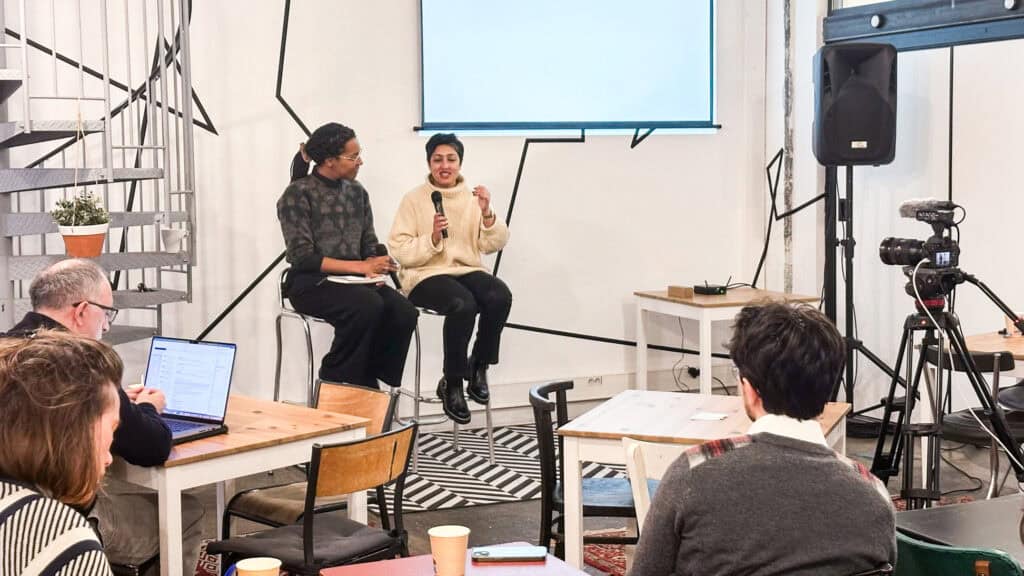Designing Governance for Transformative AI: Top Proposals from the FLI & Foresight Institute Hackathon
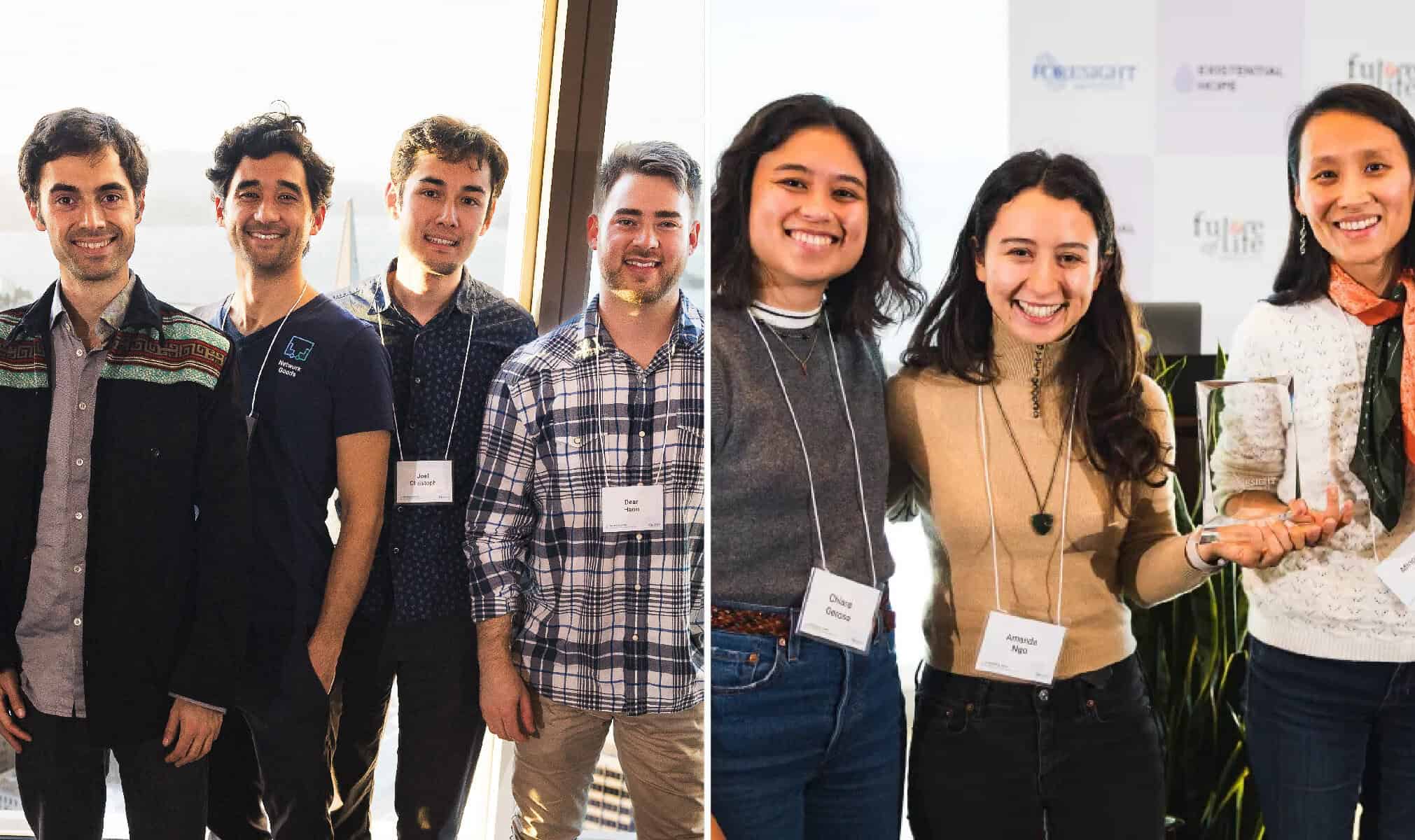
Contents
Guest post by Allison Duettmann (CEO, Foresight Institute) and Beatrice Erkers (COO, Foresight Institute)
If there is one factor that contributed most to society’s progress, it is intelligence. We have progressed from living in caves to living in electrified houses with clean water and a quality of life that would have seemed like a sheer utopia if our ancestors had been able to even imagine it. At the same time, intelligence contributes to the biggest risks to humanity – without intelligence, we would have no nuclear energy but also no nuclear bombs.
Transformative AI could amplify both the societal benefits and risks of intelligence. But contrary to the emergence of human intelligence, we have an opportunity to shape AI’s development: What goals could society achieve with AI? What institutions already exist for this purpose? Can we learn from their successes and shortcomings to build institutions better designed to leverage transformative AI for good?
To explore these questions, Foresight Institute and the Future of Life Institute gathered leading researchers in AI, policy, law, economics, and related fields for a two-day event in February 2024: the Existential Hope Transformative AI Institution Design Hackathon. The goal was to design institutions that can guide the development of Transformative AI for the benefit of humanity. Institutional proposals were judged based on how well they would work, how realistic they were, and the positive impact they could have. If you are curious to learn more about the hackathon procedures and outcomes you can learn all about it in our detailed hackathon report.
Here are the three winning institutions:
1. Can AI Make Us Happier? The Flourishing Foundation’s Proposal for a Human-Centered Future (Hackathon Winner)

The Flourishing Foundation is an independent innovation lab that tackles the question: can AI make us happier? Their mission is to ensure that powerful new technologies like AI benefit humanity and the planet.
This interdisciplinary group of scientists, designers, engineers, and artists believe technology should strengthen our connections – to ourselves, each other, and the natural world. They advocate for “life-giving” economic systems, arguing that deploying AI within current economic structures won’t necessarily improve well-being.
The Flourishing Foundation takes a systems-thinking and life-centric design approach. Here’s how:
- Operationalize Research: Translate interdisciplinary research into knowledge frameworks that better guide conscious technology creation: e.g. alternative well-being based success metric for consumer tech products and services other than “engagement”
- Incubate Products: Provide holistic and hands-on support for innovators to design and run experiments with a focus on conscious/humane use of transformative technologies: e.g. AI-enabled solutions for elderly care and family connection
- Build Movement: Build awareness by mobilizing innovator communities to channel their creative energy towards conscious tech creation: e.g. weekly meetups, quarterly build days, and symposiums.
2. AI for Democracy? The Global Deliberation Coordinator Aims to Revolutionize Global Decision-Making (Shared Second Place)
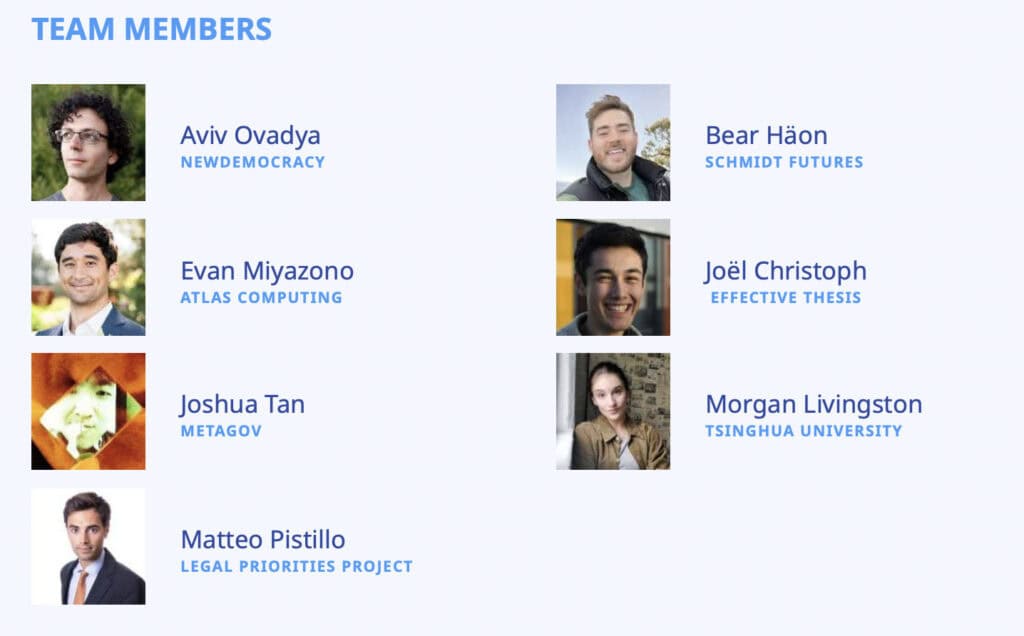
The Global Deliberation Coordinator (GDC) is a new approach to global decision-making through “Global Deliberation as a Service” (GDaaS). GDC is a coordinating body that works with partners around the world to convene a representative microcosm of the planet — and equip them with the structure and resources needed for high-quality deliberation.
These global deliberations can be utilized by international organizations, governments, and companies to prove input or make critical decisions that put “humanity in the loop”. Through an advanced market commitment, pilot projects, and integration of cutting-edge AI and deliberative technology, the GDC seeks to demonstrate the feasibility and impact of this new model.
By making global deliberative processes more accessible and impactful, the GDC aims to strengthen humanity’s collective decision-making capabilities in the face of planetary challenges like artificial intelligence development and climate change. GDaaS offers a powerful new tool for incorporating the considered will of the people into how we navigate the crucial choices ahead.
3. Preparing for the Unexpected: Transformative Simulations Research Institute (Shared Second Place)
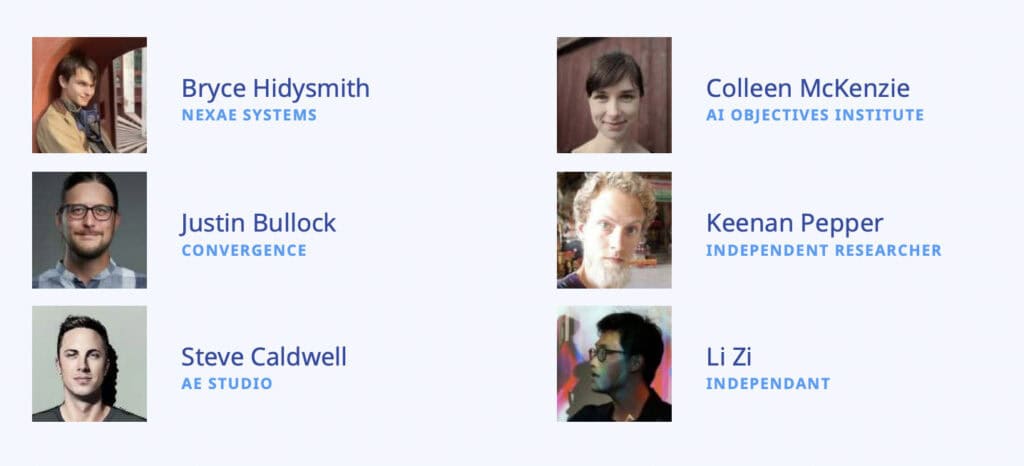
The Transformative Simulations Research Institute (TSR) is a new organization dedicated to rigorously modeling how individuals, groups, and societies may respond to the emergence of transformative artificial intelligence (TAI) capabilities. As TAI systems grow more powerful, there are risks of misaligned or adversarial development that could destabilize or threaten humanity.
To help mitigate these risks, TSR employs cutting-edge simulation techniques like wargaming exercises, computational games, and human-led scenario roleplays to systematically investigate potential TAI trajectories from multiple perspectives. By developing an empirically-grounded, multidisciplinary understanding of the cognitive patterns, social dynamics, and ethical issues that may arise when advanced AI intersects with human actors, TSR aims to equip policymakers and technologists with crucial foresight.
TSR’s goal is to steer transformative AI development toward robustly beneficial outcomes that safeguard human flourishing over the long term. TSR’s simulations chart the vast possibility space of TAI-enabled events and human decision pathways, identifying potential pitfalls but also constructive governance frameworks. The institute pioneers novel experiential modeling approaches to reality-test our assumptions and future-proof society against catastrophic AI failure modes as this powerful technology advances.
A hackathon can excite institutional prototypes but the real work lies in realizing them. To incentivize and support the continuation of the work initiated during the hackathon, the winning team was awarded $10,000, and the two teams that were selected as runners-up, each received $5,000. To put these ideas into action, each proposal – The Flourishing Foundation, the Global Deliberation Coordinator, and the Transformative Simulations Research Institute – are currently being incubated into real-world institutions. We look forward to following their evolution.
To provide efforts like this with the support they need, The Future of Life Institute launched its Futures program: This program aims to steer humanity toward the beneficial uses of transformative technologies, including offering funding opportunities for research on safe AI applications to improve the world.
To offer a recurring forum for envisioning beneficial AI worlds, The Foresight Institute launched its Existential Hope Worldbuilding Course: This course focuses on exploring AI in various future scenarios, promoting optimistic visions of AI solving global challenges.
We extend our gratitude to all who contributed – from our hackathon teams, to the judges, mentors, and the Future of Life Institute. Stay tuned for further updates on the implementation of these ideas!
Resources
About the Future of Life Institute
The Future of Life Institute (FLI) is a global think tank with a team of 20+ full-time staff operating across the US and Europe. FLI has been working to steer the development of transformative technologies towards benefitting life and away from extreme large-scale risks since its founding in 2014. Find out more about our mission or explore our work.
Related content
Other posts about AI Policy, Guest post, Partner Orgs

Michael Kleinman reacts to breakthrough AI safety legislation
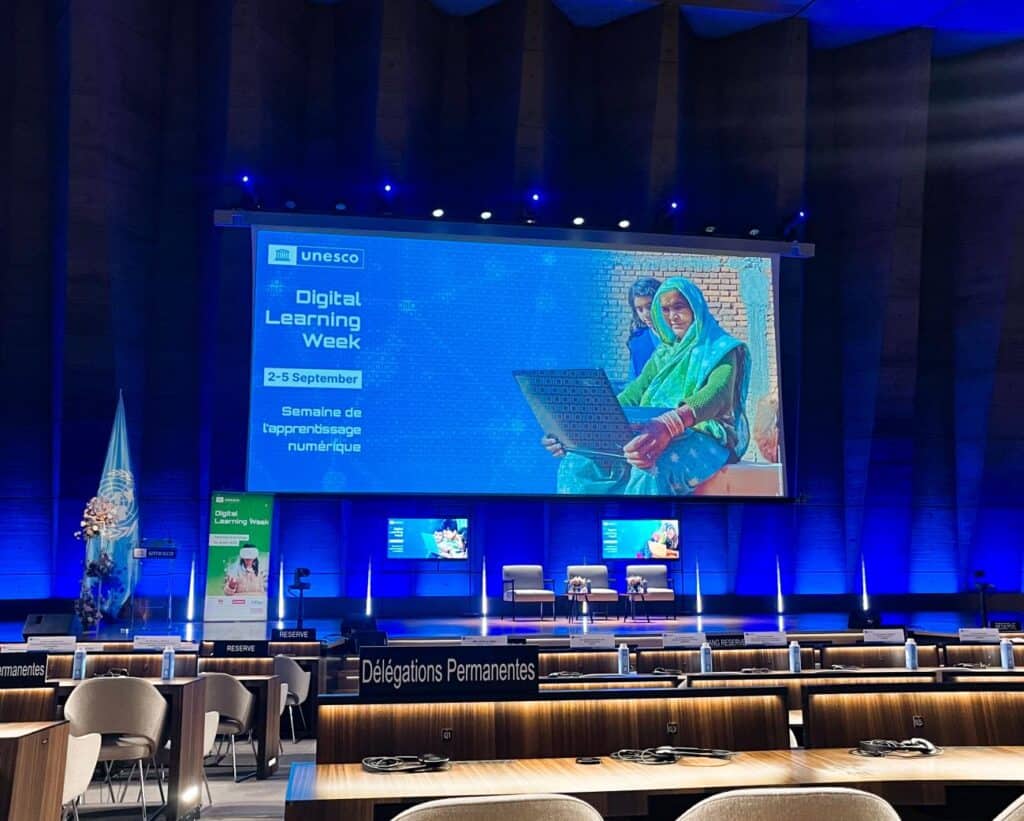
The Impact of AI in Education: Navigating the Imminent Future

Context and Agenda for the 2025 AI Action Summit
